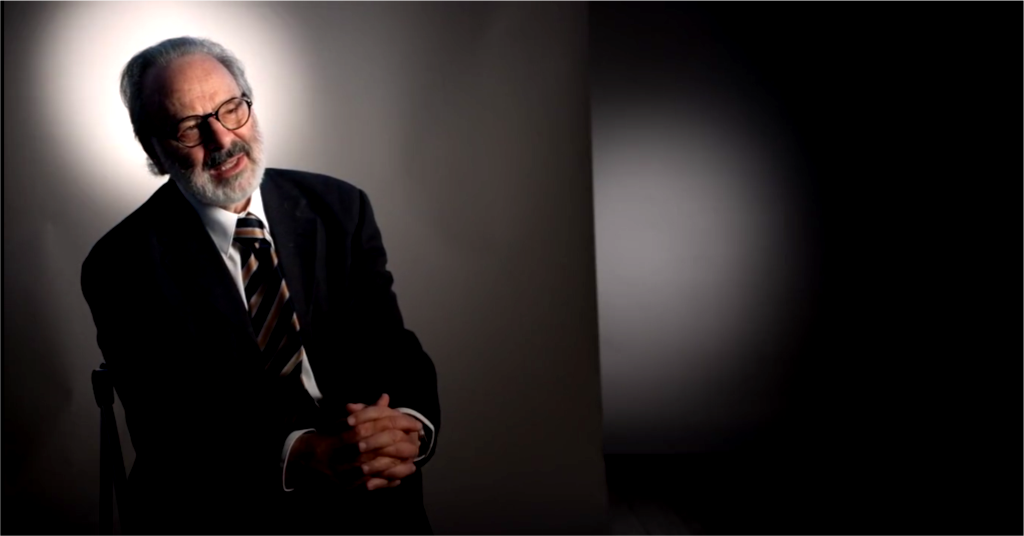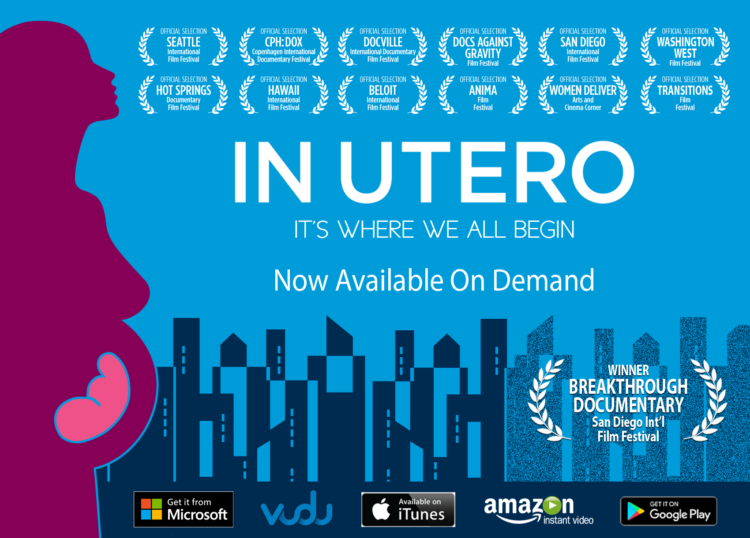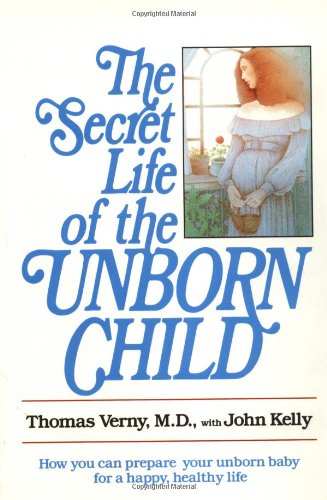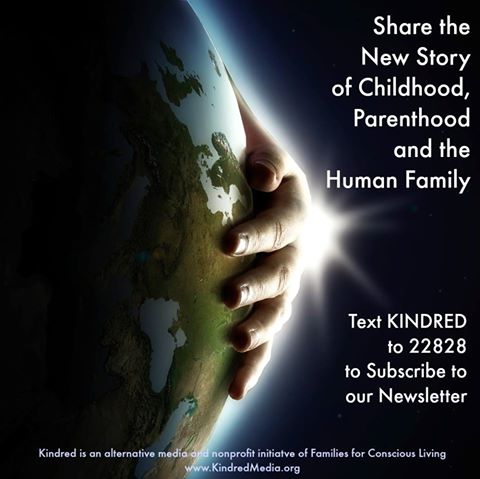Ducking Pies Presenting Birth Psychology For 34 Years: An Interview With Thomas Verny, MD
 Thomas Verny, MD, on Ducking Pies Presenting Birth Psychology For 34 Years: An Interview With Thomas Verny, MD
Thomas Verny, MD, on Ducking Pies Presenting Birth Psychology For 34 Years: An Interview With Thomas Verny, MD

Thomas Verny, MD, shares his experience over 34 years of “ducking pies” presenting the science of birth psychology that, today, finds mainstream audiences through an award-winning documentary and international universities promoting Verny’s original wisdom of the foundation of human wellness beginning at conception. Dr. Verny first presented his insights in the best selling and internationally acclaimed book, The Secret Life of the Unborn Child in 1982 and was recently featured in the award-winning documentary, In Utero, now available for on demand viewing.
In this interview, Dr. Verny shares the meaning behind his well-known quote, “Womb Ecology Becomes World Ecology” and his hope for continued social and public policy change to support pregnant mothers and babies.
Dr. Verny is a Canadian psychiatrist, writer and academic. He has previously taught at Harvard University, University of Toronto, York University, Toronto and St. Mary’s University Minneapolis, Minnesota.
Dr. Verny’s books, professional publications and founding of the PPPANA, now APPPAH, and the Pre- and Perinatal Journal, have established him as one of the world’s leading authorities on the effect of the prenatal and early postnatal environment on personality development. He lectures and leads workshops on Prenatal and Perinatal Psychology and Psychotherapy through-out Canada, the United States, Europe, South America and Southeast Asia.
Learn more about birth psychology at the Association for Prenatal and Perinatal Psychology and Health, APPPAH, at www.BirthPsychology.com.
Visit Dr. Verny at www.TVernyMD.com
Featured photo is Thomas Verny, MD, in the new documentary, In Utero. Watch In Utero on demand here and below.
Join Lisa Reagan for a Monday LIVE Lecture discussing the In Utero Film and Discussion Guide created by the nonprofit Dr. Verny co-founded, the Association for Prenatal and Perinatal Psychology and Health, APPPAH, and Kindred on November 21 at noon EDT. Find out more about APPAH’s Monday LIVE Lectures here.
Ducking Pies Presenting Birth Psychology for 34 Years: An Interview With Thomas Verny, MD
A TRANSCRIPT OF THE ABOVE AUDIO INTERVIEW
LISA REAGAN: Welcome to Kindred, an international alternative media and non-profit initiative of Families for Conscious Living. This is Lisa Reagan and today I am talking with Thomas Verny, the author the bestselling and internationally acclaimed book, The Secret Life of the Unborn Child. Dr. Verny was recently featured in the award-winning documentary “In Utero”. He is also the founder of the Association for Prenatal and Perinatal Psychology and Health and has just returned from an eight lecture series in Chile to thousands of people. So, welcome Dr. Verny.
THOMAS VERNY: Thank you.
LISA REAGAN: So, 34 years since The Secret Life of the Unborn Child. What’s happened?

THOMAS VERNY: Well, as you mentioned, we did start the Pre- and Perinatal Psychology Association of North America, as it was first called, and then it was changed to what it is now, APPPAH. We had a very good beginning. The first couple of years were very good and then there started to be sort of a waning of interest in pre- and perinatal psychology. I guess nothing very new was happening in that area and so we had a core membership I guess of about 200 people who would come to our biannual conferences, but then I did start our journal, the Pre- and Perinatal Psychology Association Journal and that helped and then we started a newsletter and that helped. And I would say that during the last 6 years or so, we have had a real revitalization, re-energizing of the whole area of pre- and perinatal psychology.
LISA REAGAN: What can you attribute that to?
THOMAS VERNY: That’s hard. It’s hard to say. I think that, in a way, people like myself and David Chamberlain, and many of the other sort of prominent leaders in the pre- and perinatal psychology field, you know, have been going around for years lecturing here and there like Johnny Appleseed, you know, seeding the world with our ideas and I guess it takes a certain amount of momentum before things take off, you know. I guess we have reached that stage, where there’s just, in fact there is so much good information about pre- and perinatal psychology and the importance of those first 9 months of life out in the world that when a few years ago, I tried to publish a new book in this area, most publishers said, well, this is not news. Give us something new. So having sort of been on the outskirts or on the perimeter of science, we have moved into the middle ground. So it has become acceptable to speak about pre- and perinatal psychology and the very best example of this has been my recent trip to Chile, which is why I’m really so excited about my experiences there, because there I actually spoke to something like 200 neonatologist doctors. Doctors in the past have been the most resistant of all of the professions to accept, you know, sort of the core concepts of pre- and perinatal psychology, yet, this time in South American, in Santiago, there was no criticism. There were no negative comments. It was like a different world.
LISA REAGAN: This was eight lectures in just a few days and one of the rooms was 500 people, standing room only, 2000 were streaming in. So this is a tremendously popular subject. It was piped into 29 hospitals, all across Chile. It was followed outside of Chile. I don’t know how they did that. I don’t know the mechanics of it. But you know, I am told that people from Argentina. There were 23 people from Argentina who were watching it. There were 21 from the USA, 15 from Columbia, 8 from Spain, you know, on and on and on. So not only in Santiago, not only in Chile, but people from all over South America, Spain, and even three people in Germany were watching it somehow. So I think that what that says to me is that the science of pre- and perinatal psychology is becoming mainstream and it is becoming accepted. You know, I no longer have to sort of duck the pies that are being thrown at me as metaphorically I’m speaking as I was in the past. You know, I would get on a radio show and people would say, well Dr. Verny, do you really believe that children can remember their birth? I mean, these were the kinds of questions I was being asked. When I spoke to doctors, you know, just looking at their faces, you know, it told me that they did not believe one thing that I was telling them. So things have really changed. I think that we are on the doorsteps of a real acceptance, as I have said, of some of the core concepts of pre- and perinatal psychology.
LISA REAGAN: Well, you were in the movie, the documentary that just came out on demand, “In Utero”, and they touched on, well, they use your quote, “The womb ecology becomes world ecology,” quite a bit and APPPAH does as well. It’s a great quote, but it is a tremendous stretch for most people to get their minds around.
THOMAS VERNY: So what it really means, if I may get in there, because I know that you are sort of time limited. What it really means is, that you know, a child that is conceived in love and seen through pregnancy with love and affection and acceptance and born in love is going to be a very different kind of a person than a person who has not had those kinds of advantages. Like a person, for example, who was conceived as the result of rape and who during the 9 months of pregnancy, the mother was under incredible stress. Should I keep this child? Should I abort it? So those feelings, those emotions are translated into neurohormones and also we are learning from epigenetics that they have a tremendous effect on the genome of the child because we are not our genes. We are the expression of our genes. In other words, some genes get turned on, some get turned off, and all of that is done through the environment. So what I am saying is that it is tremendously important how children are sort of treated from the beginning from conception on. So if we can protect the amniotic universe, the womb, so to speak. If we can keep out toxins, whether they happen to be chemical, physical, or psychological. If you can keep out these toxins, then that is equal to womb ecology and that will lead to world ecology. In other words, a more peaceful and a better world.
LISA REAGAN: So now that the message is becoming more mainstream in vehicles like this, “In Utero” documentary.
THOMAS VERNY: Yes.
LISA REAGAN: Which has been translated into ten languages and has won a lot of breakthrough documentary awards, what’s going to happen? Is society or public policy ready to shift to accommodate the science?
THOMAS VERNY: Yes, I think they’re moving towards that day. I think it’s going to take more work on our part, you know, more programs like the one that you are just making right now. We need to put this message out again and again and again until people really hear it. My book, for example, The Secret Life of the Unborn Child, the only way it got into the hands of academics and doctors was through their wives. No academic or doctor, as far as I know, ever picked up my book, The Secret Lift of the Unborn Child, in the 1980s. So it was the wives. It is usually the women who sort of tune into these sort of things first and then they pass it onto their husbands and we are still living in the world, but that is also changing and that is for the good, where women have more and more of a voice. But in the past, it was a patriarchal society and it was the men who really decided, you know, what is happening in the world. So if you ask me where I would be going, I think we are moving towards an acceptance of these ideas and then translating them as you pointed out quite rightly, into legislation, into public policy.
If you take one example, the treatment of pain in newborn children, okay. Twenty or thirty years ago, nobody paid any attention to giving children who were being operated on, who were having all kinds of surgical procedures any anesthetics or analgesics. It was believed that they did not feel the pain. I mean, this is incredible. It drove me crazy to witness that and to hear doctors say, well, even if they feel pain, they’re going to forgot it. Well, that’s nonsense. They’re not going to forget it. It’s inscribed in their brains forever. So only gradually has that changed as a result of some really really fine doctors, particularly at the Massachusetts General Hospital in the 1980s, who wrote papers about this and published in the New England Journal of Medicine and since that time, things have changed. That one area, for example, that has been I think influenced by pre- and perinatal psychology. So there will be other areas.
LISA REAGAN: So in the mean time, who is, in the countries that you’ve visited, who seems to be doing it well? Because I know the United States is the only developed country that has no paid parental leave and really high rates of maternal morbidity. I think we’re the winner in that category and black mothers are five times more likely to die in childbirth.
THOMAS VERNY: That’s right. That’s right.
LISA REAGAN: So is anyone, has anyone pioneered a model for how to accommodate the science?
THOMAS VERNY: You mean, in Chile? Or in the United States?
LISA REAGAN: Yeah, well, for example, Chile, any country.
THOMAS VERNY: Well, I was there only for two weeks, so I cannot say that I am an expert on Chile in any way, shape, or form. But I know that, for example, in Concepcion, which is the second largest city, you know, there is a course which they call primal health, which in Spanish sounds better than it sounds in English. But they have had a primal health diploma course for ten years, it’s a two year course. They’ve had it for ten years now. The lady who leads it, Yolando Carrera, has been an absolutely pioneer in this area in Chile and she is well-known all over the country. She has introduced this course 10 years ago with the help of Michel Odent, which is, you know, another prominent obstetrician, who has been working towards humanizing childbirth for a very long time. So that course has been well-recognized and they hope to change it to a masters level next year. I would love to see courses like that in the United States and Canada at universities. I don’t think that we will ever see pre- and perinatal psychology concepts widely accepted until they are taught at the university level. Because doctors only believe what they are taught at the university and no matter how many books I or my colleagues write, that to them is not important. The important thing is what their professors said when they were young students at the university. So if it’s not taught at the university, it does not really exist.
LISA REAGAN: Where does that leave professionals? Birth workers and parents, who, I’ll tell you an example, I just talked with Samsarah Morgan, who is the executive director at the Oakland Better Birth Center in California and they watched the “In Utero” movie and one mother who was pregnant was watching you talk in the movie, began to cry, and then the center director said she began to cry, and later when they had the group discussion about what was it that was moving for them, the young mother said, “Well, I thought this was true, but everybody said it wasn’t. So now I’m going to act like it is.”
THOMAS VERNY: Right. Right. Right. Well, that’s wonderful. That’s absolutely wonderful. You know, like I said, your program and movies like “In Utero” and other programs are going to change public perception of what these first 9 months and the first few months after birth really mean. I only talk about hard science, like all of my lectures, I don’t usually tell, perhaps one or two case studies or anecdotes, but most of it is just hard studies from the best universities in North America and they are all proving my point, okay, which is that these first 9 months of life are tremendously important and will set the direction for the life of this person forever, you know. It is a little bit like a gravitational pull, you know. We don’t think of gravity, but just try to jump up and stay up, okay, gravity is going to bring you down very quickly. It’s the same thing with these experiences that we have at a very young age, okay. We are inscribed in our system, in our whole body, not just the brain, but you know, in all the cells of our body, they are inscribed and they exert a kind of psychological gravitational pull. All our actions, all of our thoughts and feelings are influenced by our past experiences. I mean, this is so simple. You know, I mean, you don’t need to be a genius to understand that. People somehow, scientists, for the longest time, have acted as if birth was the beginning of life. That is ridiculous, because we have had 9 months of development before we were born and those 9 months don’t count, come on!
LISA REAGAN: So the movie just talks about the problem, they say. They’re outlining the problem that is caused by our imprint. But Stephen Gyllenhaal, the film maker/producer has said that he is going to make an “In Utero 2” and he is going to talk about some of the solutions and modalities and healing possibilities for birth trauma and just for this imprint. Do you see that being received well out there? Those ideas?
THOMAS VERNY: Well, let’s see. It’s not as simple as that. Well, you asked me about womb ecology and world ecology and I was telling you, you know, that a loved child is going to become a loving person of all things being equal and a hated, you know, unloved, uncared for child is going to become a pretty negative individual, right? So there you have the seeds of positivity and negativity. It’s not all negative, at all. Children, you know, who are well cared for right from the beginning, they won’t need to have any psychotherapy or drugs or anything like that. They’ll be happy, well-adjusted people. That’s the objective that we have in the pre- and perinatal psychology field. Let’s protect the children from the beginning from toxic substances, as I have said, whether they are mental or physical, and let’s give them lots of love and care. That will change the world in the long run, very long run.
LISA REAGAN: Very long run. So preventative is really what we want to look at.
THOMAS VERNY: Well, I mean, if we look at the world and the mess that it is in now, you know, it is not a pretty picture. Whatever we do in pre- and perinatal psychology in North America and South America and perhaps Europe is wonderful, but is it ever going to reach Ethiopia or Syria or you know, Libya, or any of those places that are just, you know, in the midst of wars and destruction? No, probably not, not for a long time. So my hopes are high for the western world, but of course there is a whole other world that we are not reaching.
LISA REAGAN: Right. So what else would you like our listeners to know?

THOMAS VERNY: What else would I like them to know? Well, I think I would like them to know that life does not begin at birth, but it begins at conception. I think that is tremendously important. I would like them to understand that your genes are not your destiny, that it is the expression of genes that makes you who you are and that depends on the kind of life that you live. If you want to have healthy children, live a healthy life yourself. In other words, you know, even before you conceive a child, you should already be in good shape both physically and mentally. That is going to make a difference to your child because how you and the father of the child are will effect that child for a lifetime. So I would like them to know that. I think that treating the unborn child already as a very very young person is very important, okay. We are not dealing with a little goldfish in a bowl of water. We are dealing with a potential human being. So it’s important to try to communicate with that child from the beginning to send positive messages into the womb to talk to the baby, to sing to the baby, and of course, to have as healthy a childbirth as possible, and to have perhaps a doula or a midwife present, to get out of the hospital as soon as you can because hospitals are for sick people. Then, very very important, to spend a lot of time with your newborn child. It’s very important to talk to the child and to hold the child and to breastfeed the child, which is good for the child and the mother. There’s a lot of research to show that women who breastfeed have lower rates of cancer, for example. So, all of those things need to be done and then our population is going to get healthier from generation to generation and hopefully, you know, in a few generations, at least North America and Western Europe is going to become a healthier place to live in.
LISA REAGAN: Let’s hope so. What is up next for you? Are you still traveling?
THOMAS VERNY: Yes. I don’t travel too much. I don’t enjoy traveling as much as I used to. You know, going to an airport now is such a hassle, going through those search and destroy missions there, you know, they yell at you, “Take your belt off! Take your shoes off!” Oh my God, I hate this. I just hate it. So I don’t travel that much. But, yes, I am also working on a new book, and I do like to speak to people who are interested about this subject. I am pretty busy.
LISA REAGAN: Well, I appreciate you taking time to talk with us today and I want to let our listeners know that you can get a transcript of our talk at Kindredmedia.org and if you are a professional and interested in studying birth psychology, please visit the venerable organization created by Dr. Verny, the Association for Prenatal and Perinatal Psychology and Health, APPPAH, and you can find them at birthpsychology.com. You can find a prenatal and perinatal educator certificate course there as well as the Conscious Baby Parent Program, which will be debuting in 2017. So you have initiated quite a bit here, Dr. Verny, and thank you very much for sticking in and ducking all of those pies.
THOMAS VERNY: It was a pleasure. And I love the fact that no pies have been thrown.
LISA REAGAN: No! I think they’re going to be serving them to you now.
THOMAS VERNY: That’s right, that’s right.
LISA REAGAN: Thank you so much.


I read Thomas Verny’s book in 1988-89, when I was pregnant for the first time. It was a challenging pregnancy and my daughter was almost born pre-maturely at 28 weeks. It had been an unexpected pregnancy and although I deeply wanted this child, I was in emotional turmoil. Now my daughter is almost 29 years old. I still feel guilty. She is very fearful.
I wish he had answered your question about Healing. As life’s path continues to unfold, I have been drawn to the work of Moshe Feldenkrais. Through this I was led to a book “The Brain’s Way of Healing” by Norman Doidge, which discussed the work of Alfred Tomatis, which gave me that deja vu feeling. Thomas Verny’s name was briefly mentioned. Funny how life is.
Anyhow, I just started a Tomatis program, which incidentally brought up memories of my 2nd child’s pre-natal time and birth. My daughter has also started the program. I wish my son would do it. I was hospitalized twice during while pregnant with him. The doctors were surprised that I did not miscarry him. But I talked to him constantly. Coaxed him. Begged him to stay. It may sound strange but almost 21 years later, I feel like I’m still doing that. Maybe I should have let him go. Maybe I need to let him go now.
Unfortunately, we cannot be all sunshine and light while pregnant with our children. Fear, anxiety, uncertainty (international moves) are often just there (let alone the intense feelings associated with morning (day AND night) sickness. I do really wish he had gone into this more. I am left with a feeling of hopelessness
I